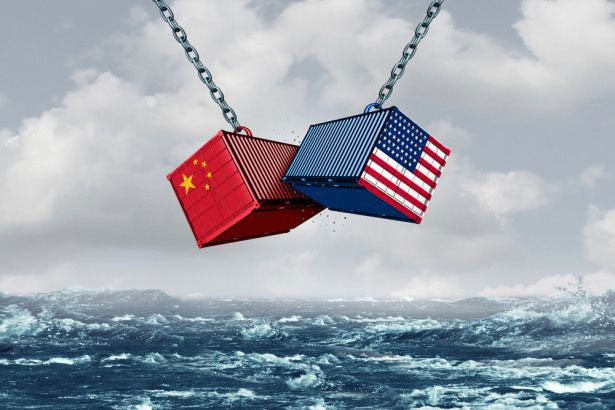
December 2, 2019
By: Jeffery Wacker, Head of U.S. Originations, Asset Based Lending, TD Bank
The trade war and tariff tensions are creating heightened uncertainty for many American industries. According to a recent survey conducted by TD Bank, 35% of executives ranked changing tariffs and trade policies as the top factor in their financial and business decision-making. It’s important that manufacturing companies consider how potential policy changes may impact their business strategies, operations, production and sourcing in order to strategically position themselves.
Potential disruption to manufacturing companies relying on imports and exports may require a refresh of current business strategies and capital structure. By understanding how new policies could affect business, companies can proactively asses a range of scenarios to determine which may impact suppliers, customers and profit margins.
Manufacturing companies facing rising tariffs on imported goods may need to absorb or offset the cost by passing along the excess to the customer in the form of increased prices, which could result in a decreased demand for certain companies’ goods or services. This could also mean that as sales volumes are sustained, these companies will have high working capital levels that will need to be financed.
Companies in this situation should engage with a financial partner who can provide financing solutions that leverage assets to maximize liquidity. For example, a revolving line of credit enables companies to borrow money as needed by providing the flexibility to drawdown, repay and redraw loans advanced to it. This is especially helpful for companies experiencing income fluctuations, as bills and unexpected expenses may be covered by the funds. Drawing against the loan brings down the available balance, whereas making payments on the debt brings up the available balance.
Conversely, protective U.S. tariffs for companies with domestic-sourced products may contribute to a price advantage, resulting in sales growth which needs to be supported by an increase in production. These companies may then have a need for additional working capital to support higher levels of raw materials or finished goods. Working capital can be used to add production capacity, labor, equipment, or plant materials.
To finance the working capital needed to support the increased inventory to manage demand, companies can take advantage of asset-based revolvers, which rely on asset values, such as inventory or accounts receivable. Revolvers provide the company with the ability to increase borrowing levels as the value of the underlying assets grow. Expansion of domestic production may also lead to additional capital expenditures needing financing, which can be solutioned through commercial real estate mortgages or equipment leasing and financing solutions.
If foreign governments respond with tariffs of their own either in the same or different industries, then export-driven U.S. businesses could be faced with a lower demand for goods. A ban on exports from the U.S. entirely could disrupt production, requiring manufacturing companies to adjust their strategy. In this instance, companies may also find themselves in a position of needing different forms of financing to support a new export paradigm. We continue to see trade agreement terms existing in a new seemingly endless paradigm of on again, off again discussions, where one country negotiates tariff rates in return for increased purchasing of another, unrelated product.
An asset-based loan, which offers a regular repayment schedule at a fixed interest rate over a specified period, provides the opportunity for a company to focus on strategic business goals to support a new export environment. Over time, when their assets grow, their capacity to borrow also increases. Asset based loans can also support fluctuations in sales optimizing collateral values to manage inventory demands. This enables companies to manage sales and cash flow spikes without adversely affecting their current financial stability and bottom line.
The impact of changes to trade agreements affects imports and exports across several industries and could have a direct effect on the end consumer. Ultimately, these changes may result in a need for new financing strategies.
According to the most recent Beige Book, manufacturing production continued to edge lower. As tariff uncertainty continues to escalate, it’s paramount that manufacturing companies understand financial options that can maximize potential growth opportunities and mitigate financial impact.
Given the uncertainties around higher import costs and export demand that trade tensions are causing, companies in several industries may find themselves in a position where their current financing options do not meet their current or future operating needs. To prepare, manufacturing companies should engage with lenders to explore financial solutions that offer flexible borrowing and repayment terms and those that leverage revenue, assets, or combination of both.
Regardless of how these changes may impact a manufacturer, being proactive in creating flexibility in financing is key to being strategically positioned through the vagaries of the global market.

Jeffery Wacker
Jeffery Wacker is US Head of Asset Based Lending Originations at TD Bank, America’s Most Convenient Bank. He has over 20 years of banking experience with expertise in leveraged finance, asset-based lending and private equity in North America and Europe.
Contact: Jeffrey.Wacker@td.com
Scott Ellyson, CEO of East West Manufacturing, brings decades of global manufacturing and supply chain leadership to the conversation. In this episode, he shares practical insights on scaling operations, navigating complexity, and building resilient manufacturing networks in an increasingly connected world.